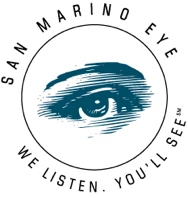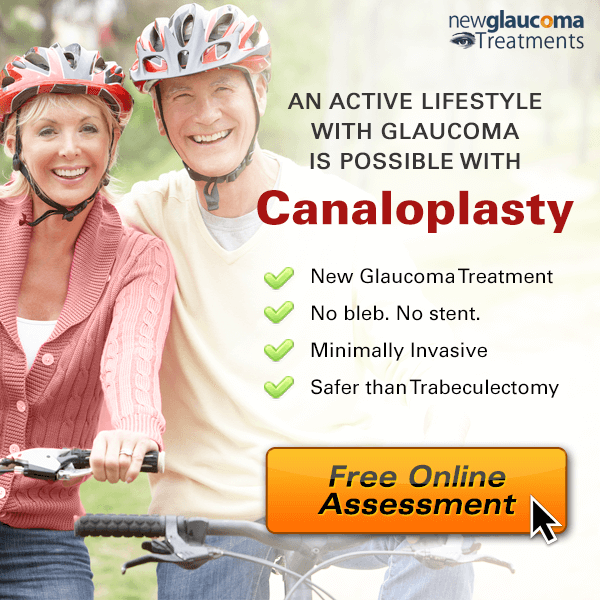QUESTION:
Dr. Richardson:
About 6 months ago I wrote letters to 6 glaucoma specialists in ******. I was hoping to find a doctor who wasn’t wedded to trabeculectomies, and was willing to consider other surgical procedures, such as canaloplasty.
Eventually I based my decision on an initial examining specialist on geographical convenience (travel).
The glaucoma specialist who recently evaluated my glaucoma is recommending trabeculectomies in both eyes.
I am interested in a 2nd opinion; however I’m concerned that there may be no controversy or dilemma here. The facts in my case are known, and cut and dry. I am 64 and have a family history of glaucoma. I have been on drops for about 15 years. My pressures have risen steadily over the last few years, and my visual field tests have started showing misses. The cupping in my optic nerves is advanced. The glaucoma specialist I saw recently changed my drops from Latanoprost and Dorzolamide, to Lumigan and Simbrinza on a one month trial to see if the pressures would drop; they did not. On drops, my LT eye was 29, and RT was 24 (no change after 30 days).
My glaucoma doctor’s advice is that there is no surgery other than a trabeculectomy that will reduce my IOPs from where they are now to his recommended target of 14 or less. If this is commonly accepted and evidence based thinking in the field of glaucoma management, a 2nd opinion may be pointless. However, my own research and reading leaves me with some doubt (opinions of other glaucoma specialists). I would appreciate your opinion as to whether a 2nd opinion might be warranted in my case, especially if you consider that you might have a different recommendation, given the facts I have provided.
I have recently had an SLT in my left eye, and will soon have one in my right. This is being done as an interim measure. While I have a good insurance plan now, I will have the opportunity to purchase an even better plan in December (re-up), and will get medicare in 10 months. My IOPs will be checked again soon.
Possibly a simple review of the previous findings and phone consult would suffice? If you foresee the possibility of a different approach than trabeculectomy (given my facts), I am certainly willing to make an appointment for an examination. I would appreciate hearing something from you either way, as I live in a remote area and driving to (or from) Southern California will involve significant time and expense.
I would appreciate hearing from you, especially if you think there may be a chance you would have a different recommendation.
Thank-you for your consideration.
******, Ph.D.
Retired School Psychologist
Fort Bragg, CA
ANSWER:
Dear Dr. ******,
I am sorry to hear (though am not surprised) that you have been unable to find a local canaloplasty surgeon. Simply put, canaloplasty just takes too much time and skill for most surgeons to bother with. Is trabeculectomy more likely to reach a given IOP target? Yes, but that comes at a price: added risk. Is canaloplasty alone likely to achieve an IOP below 14mmHg? No, but when combined with topical glaucoma drops this is a reasonable target. Of course, neither trabeculectomy nor canaloplasty can be expected to achieve IOP lowering in everyone. Even trabeculectomy has a fail rate (both short- and long-term). Given that canaloplasty is safer than trabeculectomy and that even trabeculectomy might fail, I tend to recommend canaloplasty prior to trabeculectomy in my patients with open angle glaucoma.
Unfortunately, there is not much I can offer in terms of personal advice without an in-person exam. I’ve learned over the years that reviewing other doctors’ charts is of little value. What I need to see in order to determine candidacy for canaloplasty requires that I view the eye under the clinical microscope as the angle anatomy is critical in the success or failure of canaloplasty.
I have copied my nurse, Ana, on this email in case you wish to schedule an in-person consultation. If you were to decide to have canaloplasty performed by me it will be necessary to find a local surgeon who will agree to monitor and care for your eye during the post-op period. In my experience, this is about as challenging as finding a local surgeon who performs canaloplasty. Surgeons, in general, do not like to take on the post-op care of another surgeon.
Warm regards,
David Richardson, MD
Patient-Focused Ophthalmologist
San Marino Eye
2020 Huntington Drive
San Marino, CA 91108
626.289.7856
Patient-Focused Websites:
New-Glaucoma-Treatments.com
About-Eyes.com
Date: Tue, Sep 15, 2015 at 8:19 PM
Posted in: Canaloplasty, Canaloplasty and Medications, Canaloplasty and Other Conditions, Canaloplasty and Other Surgeries

